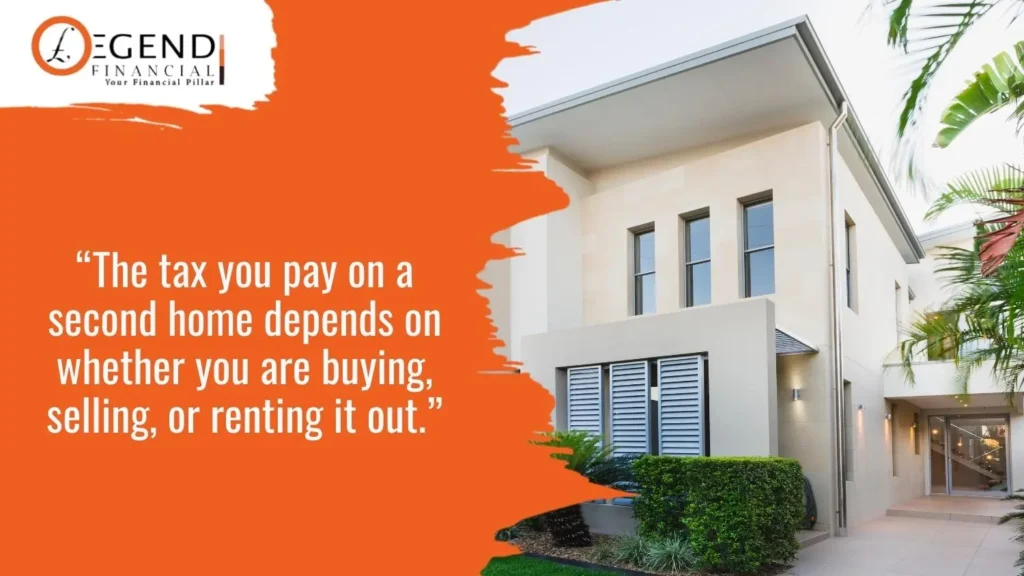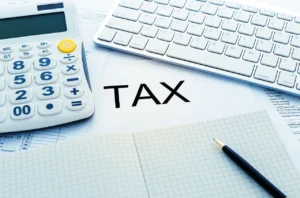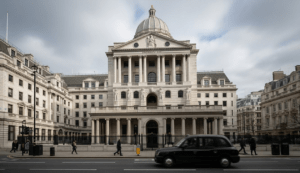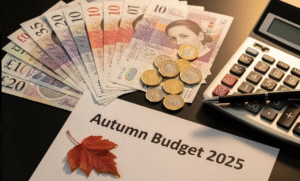Contents
Second homes are taxed depending on whether you bought, sold, rent out for profits, and other factors. When do you pay tax on second property UK, and how much? We will simplify your tax implications in this article, plus tips on how to reduce your liabilities.
Tax You Pay on Second Property
Any property that is not your primary residence is considered a second property and will incur second home tax. This may include a holiday home, buy-to-let property, and other investment properties. The kind of tax you pay and when you pay it depends on whether you:
- bought it (stamp duty)
- sold it (capital gains tax)
- rent it out (income tax)
- are a fit resident (for council tax purposes)
You can own multiple properties but can only elect one as a primary residence. This elected main home is usually tax-free or pays less tax. For your ‘second’ properties, learn about your tax implications below.

Stamp Duty
This is the tax you pay when buying a home in the UK. First-time buyers benefit from a higher tax-free threshold of up to £425,000. If you inherited a property, own one outside the UK, or someone transfers you title deeds or ownership, you are considered a second property owner. This means you will pay a certain surcharge percentage from the normal rates.
Stamp duty is named differently according to UK regions:
- England and Northern Ireland – Stamp Duty Land Tax (SDLT)
- Scotland – Land and Buildings Transaction Tax (LBTT)
- Wales – Land Transaction Tax (LTT)
Rates vary, too. If you bought your second property in the 2024/25 tax year, you will be liable to:
- SDLT starting at 3% when you bought over £250,000
- LBTT starting at 6% when you bought up to £145,000
- LTT starting at 4% when you bought over £180,000
Learn more about Stamp Duty Threshold [2024] and Reliefs here.
Capital Gains Tax
If it is your primary residence and you do not buy another within 9 months of selling, you are usually CGT-exempt, owing to the Primary Residence Relief. However, UK CGT is primarily charged on additional properties or assets disposals with taxable gain of over £3,000. It uses the same tax bracket as income tax. For the 2024/25, you pay:
- 18% if you’re a basic rate taxpayer
- 24% if you’re a higher rate taxpayer
- 28% if you’re an additional rate taxpayer
It is possible that you pay both stamp duty and capital gains tax, especially when you skip tax planning. Timing your property sales well is crucial to saving on CGT liability. Use our CGT calculator here.
If you want to know more about your CGT liability on selling your house, read our simplified guide.
Income Tax
You pay tax on second property income from property rentals, regardless of whether it is a primary or additional home. For the 2024/25 tax year, you have up to £12,570 of personal tax allowance, which is the maximum amount you can earn before paying tax.
Allowable expenses can significantly reduce your income tax liability, which you can claim as a refund in your tax return. In the case of a second property mortgage, you can claim a 20% tax credit.
Take full advantage of your potential bill deductions by strategising with a tax professional. You can also read our Tax Advice for Landlords in the UK for tax-efficient strategies on how to approach your rental profits.
Council Tax
Whether it is your own home or rented, ‘fit’ taxpayers or residents pay council tax. How much you pay depends on your band and location, ranging from A to H, A being the lowest. Council tax revenue goes to public services in the UK.
For more information about the exemption and available discounts, read our guide to Council Tax – What Is It and How You Can Reduce Your Bill.
Second Properties You Don’t Pay Tax On
Some properties are exempt from second home tax or are eligible for refunds, especially stamp duty. They can be the following:
- Mobile second homes (e.g., caravan, boat, etc.)
- Second home worth less than £40,000
- Second homes bought within three years of selling primary residence can be claimed surcharge refunds
Tax-Saving Tips on Second Homes
Here’s how you can potentially save taxes on your second property:
- When you sell your previous primary residence within 36 months of buying the second property, you can claim a refund on the stamp duty surcharge.
- There are many ways you can reduce CGT. One of the best strategies is to make your second property your main residence for a period. This may reduce your CGT through the Principal Private Residence (PPR) Relief.
- If you own multiple properties, you may want to consider setting up a property company to pay corporation tax at a lower rate than income tax.
- Get professional advice to maximise your savings on second properties. Tax advisors can help you explore all available reliefs and allowances, ensure compliance with regulations, and create a tax-efficient strategy tailored to your property portfolio.
FAQs on Redundancy Payments
No, you can only elect one property as primary residence. You can also elect a home abroad for primary residence. All the rest are considered additional properties.
The 36-month rule for CGT used to allow homeowners to sell a property without paying CGT on gains if it had been their main residence within the past three years, but this period has now been reduced to 9 months. Special circumstances, such as disability or moving into care homes, still permit the full 36-month exemption.
In the UK, there is no limit to how many homes you can own at the same time. You can own multiple properties, depending on your financial capacity, whether through personal funds, mortgages, or other financing options.
Yes, you can gift a second home in the UK, but you may need to pay capital gains tax based on the property’s market value at the time of the gift if it has increased in value since you acquired it.
Get Expert Advice at Legend Financial
There are many ways you can save tax on second property whilst staying compliant with HMRC regulations. The first step you should take is tax planning. Legend Financial is here to help. With over 12 years of experience in the UK market, we have successfully guided hundreds of clients in reducing their tax burdens and maximizing savings. Book an initial no-obligation consultation with us today!











